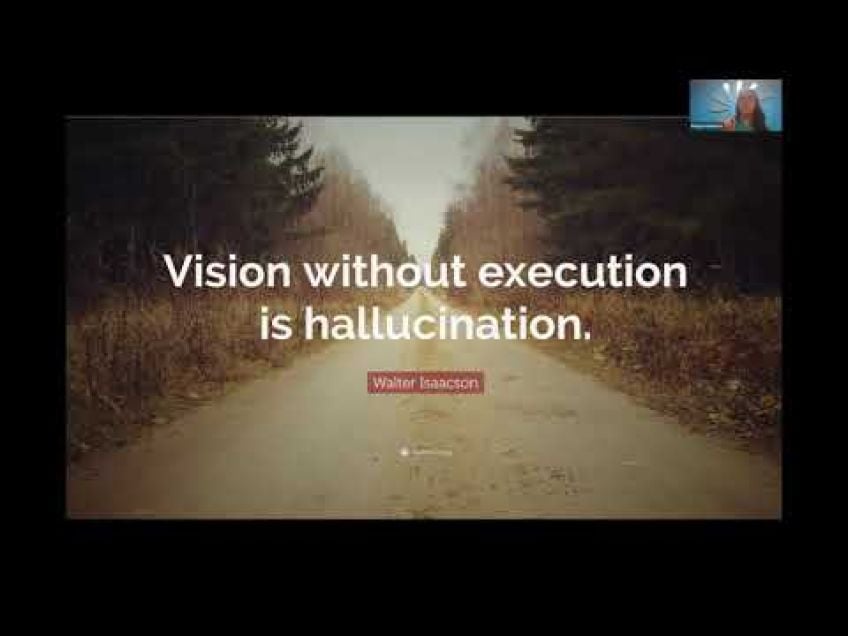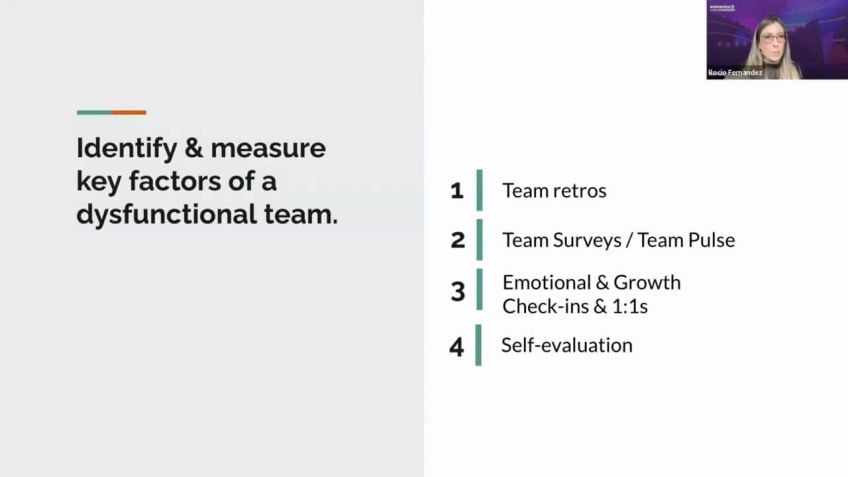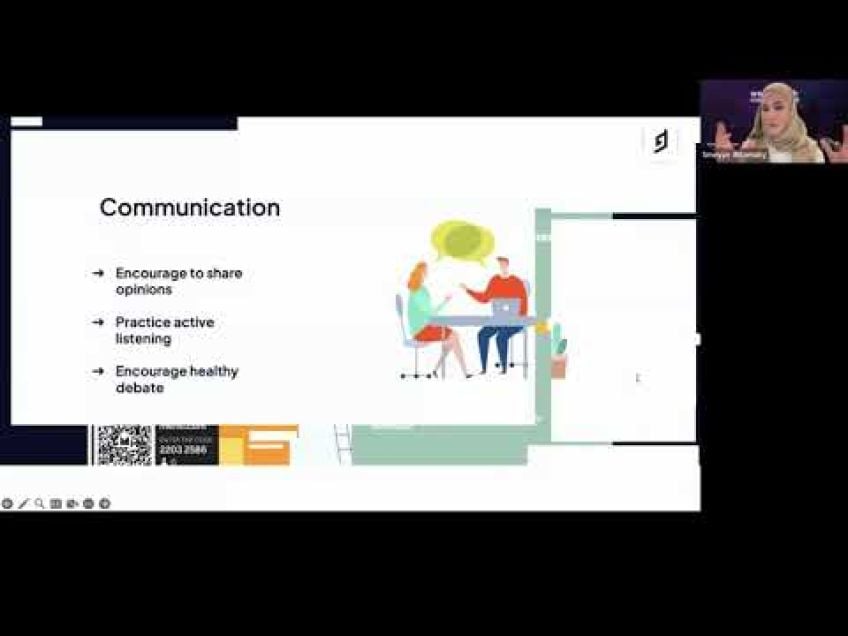How trust enriches the team productivity by Eva Bielitzer
Why Trust is the Key to Boosting Team Productivity
Hello, everyone! I'm thrilled to share with you today, an essential element that significantly impacts team productivity - Trust. As a leading senior product manager at C and E Commerce, and with my rich background in market and media research, as well as business psychology, I believe understanding and fostering trust within a team is fundamental for achieving high levels of performance and engagement.
Understanding Trust
According to the Oxford Learners Dictionaries, "trust is the belief that somebody or something is good, sincere, honest, and will not try to harm or trick you."
Scientifically speaking, when we trust someone, our brain releases the hormone oxytocin. This hormone not only increases our trust levels but also boosts our motivation to work collaboratively and heightens our sense of empathy.
The Impact of Trust on Businesses
Performing at a top revenue level is 2.5 times more likely for organizations identified as high trust companies. Some of the benefits employees experience working in high trust companies versus low trust companies include:
- 74% less stress,
- 106% more energy at work,
- 50% higher productivity,
- 76% higher engagement, and
- 13% fewer sick days.
According to Google, psychological safety in teams—the ability to take risks without fear of judgment—is the most significant influencer of team performance.
Hence, trust is not merely a desirable trait; it's a hard necessity.
Building Trust within an Organization through Management Behaviors
Dr. Paul Zak, a well-known trust scientist, identified eight behaviors that generate organizational trust. These key management behaviors are:
- Show appreciation
- Design challenges
- Give discretion in how to do work
- Enable interest-driven work
- Create transparency
- Build relationships
- Facilitate personal growth, and
- Show vulnerability.
By understanding and integrating these behaviors into your organizational culture, you'll establish a solid foundation of trust.
Unpacking the Trust-Building Behaviors
Show Appreciation
Research indicates that immediate recognition after meeting a goal significantly boosts employee morale and performance. Ensure that appreciation is personal, tangible, unexpected, public, and includes recognition from peers.
Design Challenges
When employees are faced with moderate levels of stress, their focus and problem-solving abilities increase. Set difficult but achievable goals and give your team clear capabilities to meet them. Always remember to allow recovery time from stress.
Give Discretion on How to Work
By allowing individuals to work their way, you foster a climate of innovation and openness. Allow your team to express their creativity and make decisions without micromanagement. Embrace mistakes and discuss them openly.
Create Transparency
Only 40% of employees feel well-informed about company goals, strategy, and tactics. To foster trust, maintain transparency in your organization by sharing information broadly and regularly, and make it easy for employees to stay updated.
Build Relationships
Developing strong relationships between managers and their teams and among team members helps increase performance. Encourage your team to get to know each other better and arrange regular team events.
Enable Interest-Driven Work
When employees work on projects they're interested in, their productivity surges. Encourage your employees to work on what interests them and offer flexible work models.
Facilitate Personal Growth
Consider the personal interests of your employees when assigning roles and work. This will not only make them happier but also help in retaining them.
Show Vulnerability
Admitting your mistakes or knowledge gaps shows your team that you're human and fallible. This honesty encourages them to be open about their shortcomings, fostering a positive work culture where everyone can learn and grow together.
Trust: A Foundational Element of High-Performing Organizations
Cultivating a culture of trust is essential for high-performing organizations. Remember the words of Warren Buffett: "Trust is like the air we breathe. When it's present, nobody really notices. When it's absent, everybody notices."
Let's all strive to infuse trust into our organizations. Thank you all for taking the time to read this, and I look forward to hearing any questions or thoughts you might have on the subject.
Video Transcription
Hello, everyone and we presentation. I'm super excited that so many people joined my session. Uh Yeah. And today I want to explore together with you how uh trust enriches team productivity and what organizations can do in order to build a culture of trust.Um First of all, some words about me, my name is Eva. I'm a senior product manager at C and E Commerce. Um So we are a marketplace based in Germany in Cologne and are part of one of the largest trading companies in the world, the Schwarz Group. Um Before I joined C and Ecommerce, I worked as a management consulting for a boutique consulting firm called Home and Partner, which is now part of accenture. And before that I graduated my masters in uh market and media research and did my business bachelor's degree in business psychology.
So let's jump directly into the topic. Trust. What is trust? How can we define this? I guess that all of you somehow have an idea of how you would define trust. Um But I anyhow brought a short um definition from the Oxford Learners dictionaries. So trust is the belief that somebody or something is good, sincere honest and will not try to harm or trick you. Scientists also had a closer look on what is happening in the brain when we su uh trust someone. So um when we trust someone, the hormone oxytocin is released in the brain. So the more oxytocin we have um the more we trust, for example, strange of pe uh people, it also increases the motivation to work on someone's behalf and it also increases the sense of empathy. But why were today looking at trust? So I had a closer look on the impact of trust on businesses. And I found very exciting figures. The first one is the likely or likelihood of being a high performing revenue organization increases by the factor of 2.5. If a company is considered as a high trust company, you can also break this down to a more um individual level. So the scientists call Zack found out that people that are working in companies that are considered as high trust companies have in comparison to people working in low trust companies.
74% less stress, one and 6% more energy at work, 50% higher productivity, 76% higher engagement and 13% less sick days. This also correlates with a study by Google that found out that the biggest influence on the team performance is the psychological safety and teams. So the feeling of being able to take risks and uh be born in a river in front of each other so that you feel that you're safe here. Um So when you just check those hard numbers, you see that trust indeed has a very high impact on your company performance. That's why I also really like this quote here. So contrary to popular belief, cultivating a high trust culture is not a soft skill, it's a hard necessity. Put another way is the foundational element of high performing organization. I think this is very true. And um yeah, now I want to look together with you on how trust is good. So Zack identified a management behaviors that generate organizational trust. So we're not talking about trust between two individuals but trust in an organization. The first one is show apprec show appreciation.
The second design challenges. Third, give description and how to do work or in interest driven work. Fifth, create transparency, seek f relationships shifts, seventh facility, personal growth and the last one show vulnerability. So now I want to look at each um behavior a little bit closer.
And yeah, the first one is show appreciation. So the scientist, scientist found out that it's super important that you recognize high performance immediately after a girl has been met further, the appreciation should be personal, tangible, unexpected and public. Um And what is also important that it's coming from peers and not only from your management, how could you apply this in your daily business? So what I personally think is super important that you do not hide um individual contributors, contributors um behind the team name or behind a manager. So if someone did a great job, name that person, for example, when you share it in a public channel or something like this, if it's the whole team that contributed, then you can also name each individual. Um The second uh recommendation I would have is to arrange peer selected employees of the month or the year. So um that is not only the management that highlights the person, but that also the peers vote, which individuals were very good contributors. And then you celebrate those ones.
A last very easy one would be to promote physical or digital kudos cards where people can give instant feedback. And then this is also maybe available at a broader space where everybody can just step by the next one is design challenges. So when you have a moderate level of stress, your brain starts to work, um you focus more and since it's always the best to solve problems together with others, because you might be more successful but also strengthen the social connections and foster collaboration. So set your direct reports difficult but achievable goals, those goals should be clearly defined because it is super important. People need a level of direction um because otherwise they somehow get lost. What is also important here is that people can recover from this moderate stress.
You can't just put all the time, stress, stress, stress, but people also have a little bit need a little bit of time to recover. The last thing here um that is worth to mention is that you should give the clear capability to the team. So that is not the manager in the end who is held accountable, it is the team and it's their achievement if they do the good job. Um What is here a good example to apply this in your daily business is to use the O PR system, which is also used by a lot of tech companies which then can be broken down on an individual level. So each individual or each team can see how they can contribute to uh to the company goals and um have also clearly find achievement goals here. Um What we also do in our company, which I really appreciate is that um we, we have a new challenge. For example, there's a new product that should be developed, everyone can apply to this new challenge. It's not like in a backyard where the managers decide who's doing this next challenge, but everyone has the equal chance to apply. There, there's a German saying that I like in this context um that when you're a little bit overwhelmed, a space of create uh a space is created in which you can grow. So rather being a little bit overwhelmed than being a little bit underwhelmed.
The next thing that I think is super important is give discussion and how to do work. So studies found out um that an employee would rather give up a 20% pay rise for greater control. So you can see how important control is for individual contributors. Also, if you let people work the way they think it's best you foster innovation because different people try different approaches and then you have more diversity which then brings more ideas on the table. So it's super important that you embrace this one here. Um There's also a very good quote in this context for me, the Musk who said, if you are not failing, you're not innovative enough, so embrace mistakes. Um and foster a climate of openness. What is also important here in this context is that you create a forum where employees can discuss failures because you should not do a failure twice and you should not let somebody trap into a mistake that has already been made. So let's keep it, discuss it and see it as an opportunity. Also, the climate of openness is super important. What I mentioned in the beginning that you want people to speak up. If they think approach is not good that they ask good questions that they raise their voice when they think another way would maybe be better. Um In this context, avoiding micromanagement is also key. So let control go for a certain um on a certain level.
Um It's important that you only step in where it's really necessary needed. Um Do not control every meeting, do not overline. You have somehow to take a little bit risk and trust your employees and doing a good job. Um Next thing is to enable interest driven work. So when people focus on things that they're really interested in, they can release more energy. I for example, had an employee in my team that um wanted to switch to data science. I super appreciated him and he was a very good contributor to the team's success. But I believe that he now can even be better because he's following his interest. So give your employees the option to work on topics. They're really interested in what we in our company do in order to do this is to offer a flex models. So all employees can change the team. And if they think something else might be more interesting for them also, yeah, important that you provide a platform that you can get to know other teams. So for example, if you have a product with a very basic thing that also leads to less turnover rates, so if you can hold a person in your company, because he or she can follow his or her passion, you do not lose that person. So it's also for the company, a very great achievement. Next thing is create transparency um only 40% according to a study reported that they feel well informed about company goals, strategy and tactics, share information broadly give access to the right information.
It is super important for people to have direction and to feel that they're contributing to something. If the people are lacking direction, they feel stressed and that just undermines all the teamwork. So be transparent here. We have a company principle that's called create transparency and trust.
I think this is super important that you also motivate your employees to create that transparency. What we also have um with our upper management is an open door round which is somehow a safe space where uh that is not recorded and um where you also have no meeting notes or something. And there you can ask any kind of questions that you're interested in. What we also have is a public select channel policy so that we have nearly no um private select channels. So you can join whenever you want. Um This I think is also important and also if you have big strategic decisions or other decisions within the company, share those, for example, in all hand meetings and not only once a year, it's important that you do this regularly. Next thing uh thing is building relationships.
So this is from my point of view, something that is also highly underestimated and it's not waste of time or wasted money. Um A Google research research found out that managers that express an interest in their um employees and also listen to their concerns, outperform their colleagues by far. So show interest in your employees and care about their concerns, ask them what is important to them, how you can help them, how you can enable them to achieve what they want to achieve and also push your employees to get to know each other, the better your employees know each other, the better they can collaborate and the better they can trust each other.
So arrange regular team events, arrange after work parties or squander lunches where people just can casually come together. Um What I personally think is also super important is the design of your offices if you have offices. So um that you have get together spaces um where people just can meet, hang out, um chat a little bit um or have fun together. So we in our office, for example, have kickers and I think there's even more that you can do here. Um in this context, it is also important, which I think is especially interesting for um consulting firms that you should let people come to work as a system. So how you dress up yourself or yeah, it's also is a contribution on how you are and how you want to express yourself. And if you can dress up or look the way you think it's, you, you also show something from your prisoner so far at this one. The next thing is um facilitate personal growth. So um research has shown that it's not only important to foster your professional growth, but also your personal growth. Um So enable your employees to combine the work with a personal interest. What we, for example, offer our employees is to work from whenever they, wherever they want to. So if you're a person that say, OK, I'm happy when I'm on the beach or in an area that is hot or I rather like the snow.
I want to go to Norway, you can do that and you do not have to ask. So I think this is one contribution that is super important. Another thing is that for example, if you have someone in the team that is a professional, will might enable that person to realize its training and to go to the training. Because when you're happy in your outside work, you can also perform on your work as well in your personal life, you can also perform in your professional life. Um In this context, it's also super important, especially to the mothers out here that you enable your employees at each level of the care to work part time and to take care of the family. The last one is that I really, really like is show vulnerability. That's also a very, very great ted talk from Reenie Brown on this topic. And what is super important is that you show when you're not knowing something that you also that you're not a perfect person. Um Here again, I found a very good quote from Simon Synek. So the biggest mistake that leaders make is to think that they have all the answers. And if they don't to pretend that they do, you shouldn't do this, you should show when you do not know something and admit to this.
So ask your colleagues for help you show appreciation, you show that you think that they have the right skill set, that they have the right knowledge and this also enables them um to speak up because when you know, OK, that person is not perfect. Um Then I might contribute something to do it even better. Um Also in this context, it's important that you take responsibility for your mistakes. So if something did not work out as it was planned, which is OK, say that was on you. Um And not on somebody's at spot. This also shows that you're not perfect. Um In this context, I think it's also very worth to mention um that it's not a weakness to show emotions on work at work. It's a strength and it shows that you're like a human being that is not perfect. So I think everybody should take this one to the heart. This was already my um last advice and I want to close the session um with another very great quote. So trust is like the air we breathe when it's present. Nobody really notice when it's absent. Everybody notice this one is from Warren Buffett. Yeah. And with those words, I really want to thank you for your time and yeah, for listening and yeah, I really enjoyed this and want also to open the room for questions.





